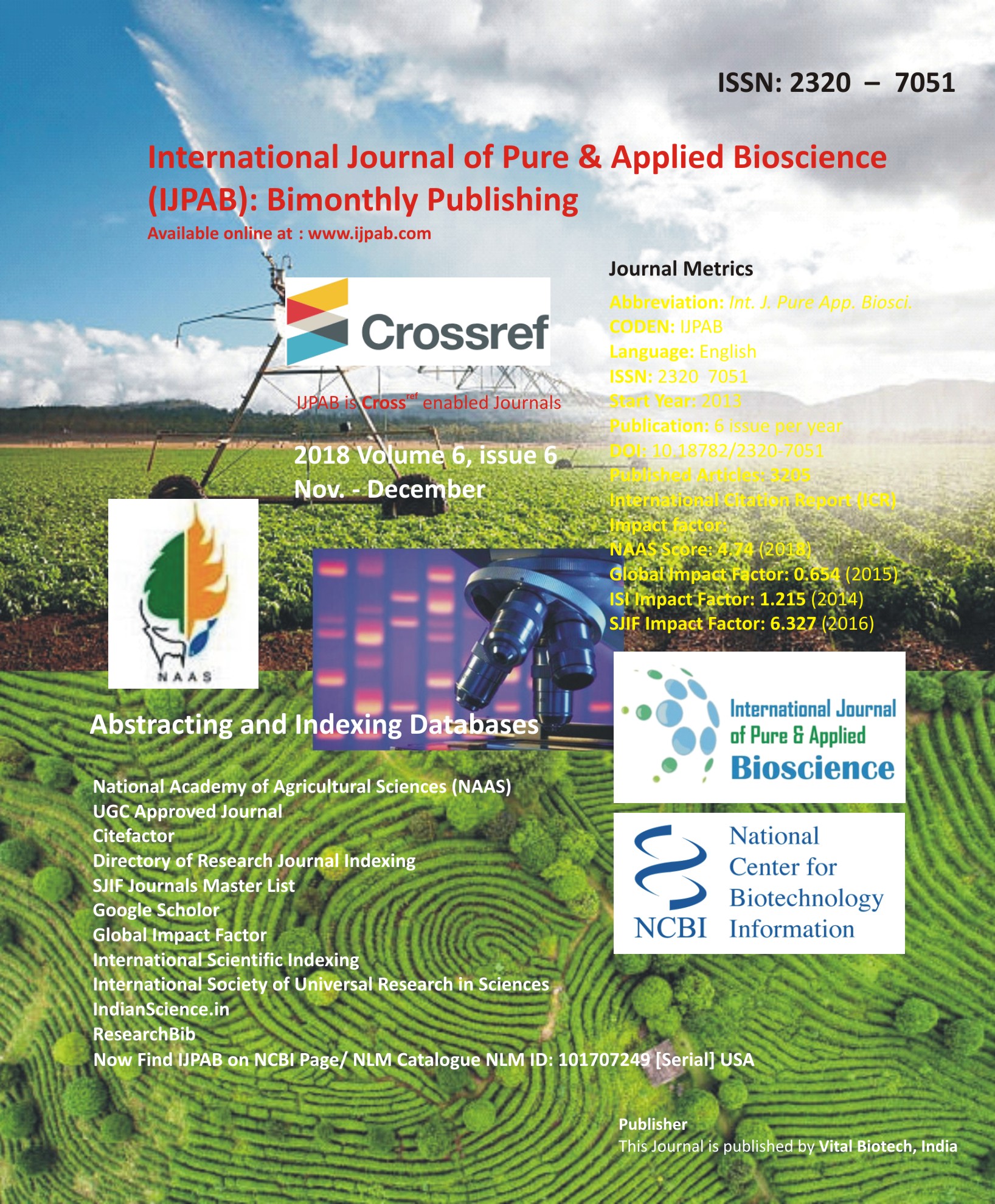
-
No. 772, Basant Vihar, Kota
Rajasthan-324009 India
-
Call Us On
+91 9784677044
-
Mail Us @
editor@ijpab.com
International Journal of Pure & Applied Bioscience (IJPAB)
Year : 2018, Volume : 6, Issue : 6
First page : (1107) Last page : (1115)
Article doi: : http://dx.doi.org/10.18782/2320-7051.7077
Evaluation of Indian Rice Varieties under Direct Seeded and Transplanted Rice Production Systems for Grain Yield and Quality Traits
Jaswant S. Khokhar* and Ashok K. Sarial
Chaudhary Sarwan Kumar Himachal Pradesh Agriculture University, Palampur, Himachal Pradesh-176060
*Corresponding Author E-mail: khokharjaswant@gmail.com
Received: 14.11.2018 | Revised: 17.12.2018 | Accepted: 24.12.2018
ABSTRACT
Direct seeded rice (DSR) require less labour, less water, less input and tend to mature earlier than transplanted rice (TPR). Low input cost in DSR system makes it better alternative than conventional transplanted system of growing rice. We evaluated twenty five rice varieties, developed for TPR system, belonging to different maturity groups and genetic background (basmati, non-basmati and hybrids), in DSR and TPR production system for grain yield, component traits and quality traits through character association and path analysis. The two experiments were laid out in RBD with three replication each at the experimental farm of the Rice Research Station, Haryana Agricultural University, Kaul during Kharif season (June-November) 2012. Plot size was kept at 2 x 0.20 x 5 m2. Data were recorded on 5 randomly selected plants per genotypes per replication for 12 traits of grain yield and quality. The analysis of variance revealed significant differences amongst the genotypes for all the characters in both the systems. The magnitude of association of grain yield ranged from low (r=-0.32) with plant height to high (r = 0.412) with biological yield under DSR while it varied from low (r = -0.09) with milling percentage to high (r = 0.59) with biological yield under TPR production system. Grain yield significantly correlated with percent filled spikelets, days to maturity, 1000 grain weight and biological yield per plant in both the production systems.
Path analysis showed that harvest index had the maximum positive direct effect on grain yield followed by biological yield under DSR while under TPR system harvest index had positive direct effect on tillers/plant followed by 1000 grain weight and days to 50% flowering. Therefore, character association and path coefficient analysis are important selection indices to identify genotypes and traits which could be used to develop the varieties with higher grain yield and better quality for low cost DSR production system.
Key words: Correlation coefficient, Low cost-DSR, Path coefficient, Rice and TPR.
Full Text : PDF; Journal doi : http://dx.doi.org/10.18782
Cite this article: Khokhar, J.S. and Sarial, A.K., Evaluation of Indian Rice Varieties under Direct Seeded and Transplanted Rice Production Systems for Grain Yield and Quality Traits, Int. J. Pure App. Biosci.6(6): 1107-1115 (2018). doi: http://dx.doi.org/10.18782/2320-7051.7077

